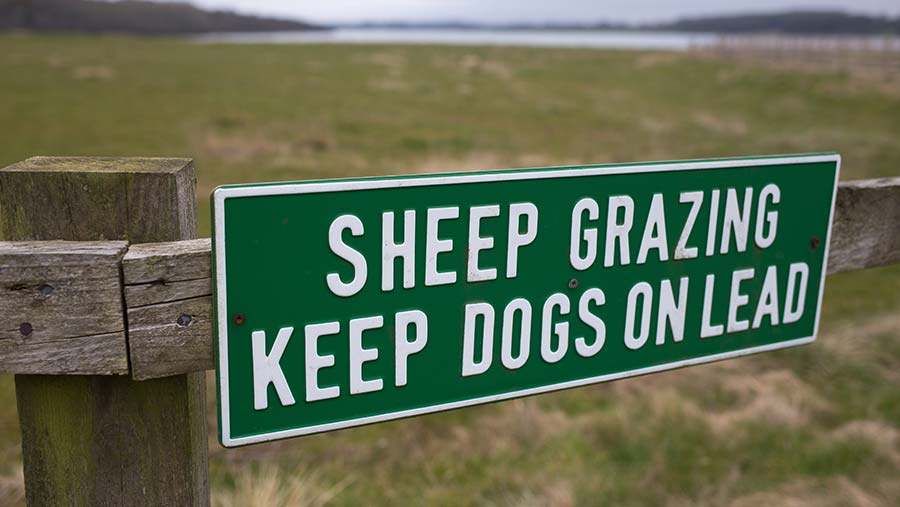Livestock attack bill proposes maximum £40,000 fine
 © Tim Scrivener
© Tim Scrivener Twelve months in prison and a maximum fine of £40,000 are among the tough measures proposed in new legislation to clamp down on livestock worrying in Scotland.
The Dogs (Protection of Livestock) Bill has been tabled by Emma Harper MSP in a bid to help farmers who are left to deal with the devastation of attacks on their livestock.
On Thursday (21 January), MSPs will consider the general principles of the bill and vote whether it should proceed to the next stage for more detailed scrutiny.
See also: What to do if you’re a victim of… sheep worrying
The bill has been recommended for approval by the Rural Economy and Connectivity Committee, which MSPs will take into consideration during Thursday’s vote.
The proposed tougher financial and custodial penalties, as well as greater powers for police to investigate and enforce livestock-worrying offences, have been welcomed by NFU Scotland.
The union said livestock attacks and dog fouling are two of the biggest issues farmers, crofters and landowners face.
Amendments
Ms Harper said: “I have agreed to a number of amendments to the bill which will be taken forward at stage two in February.
“These include a technical amendment to include an affirmative procedure for regulations regarding the definition of livestock, increasing the maximum available penalty to 12 months imprisonment or a fine of £40,000, or both, which will be taken forward by the Scottish government, removing provisions authorising inspecting bodies other than the police to carry out investigation, and, finally, removing the power for entry to non-domestic premises without a warrant.”
NFU Scotland president Andrew McCornick encouraged MSPs to support the legislation at its first parliamentary hurdle.
“If approved, this will ensure this important bill for Scotland’s farmers and crofters is one step closer to becoming law before the Scottish parliament is dissolved in advance of the elections in May.
“The progress of this bill is crucial if we are to send out a clear message on this matter,” Mr McCornick said.
